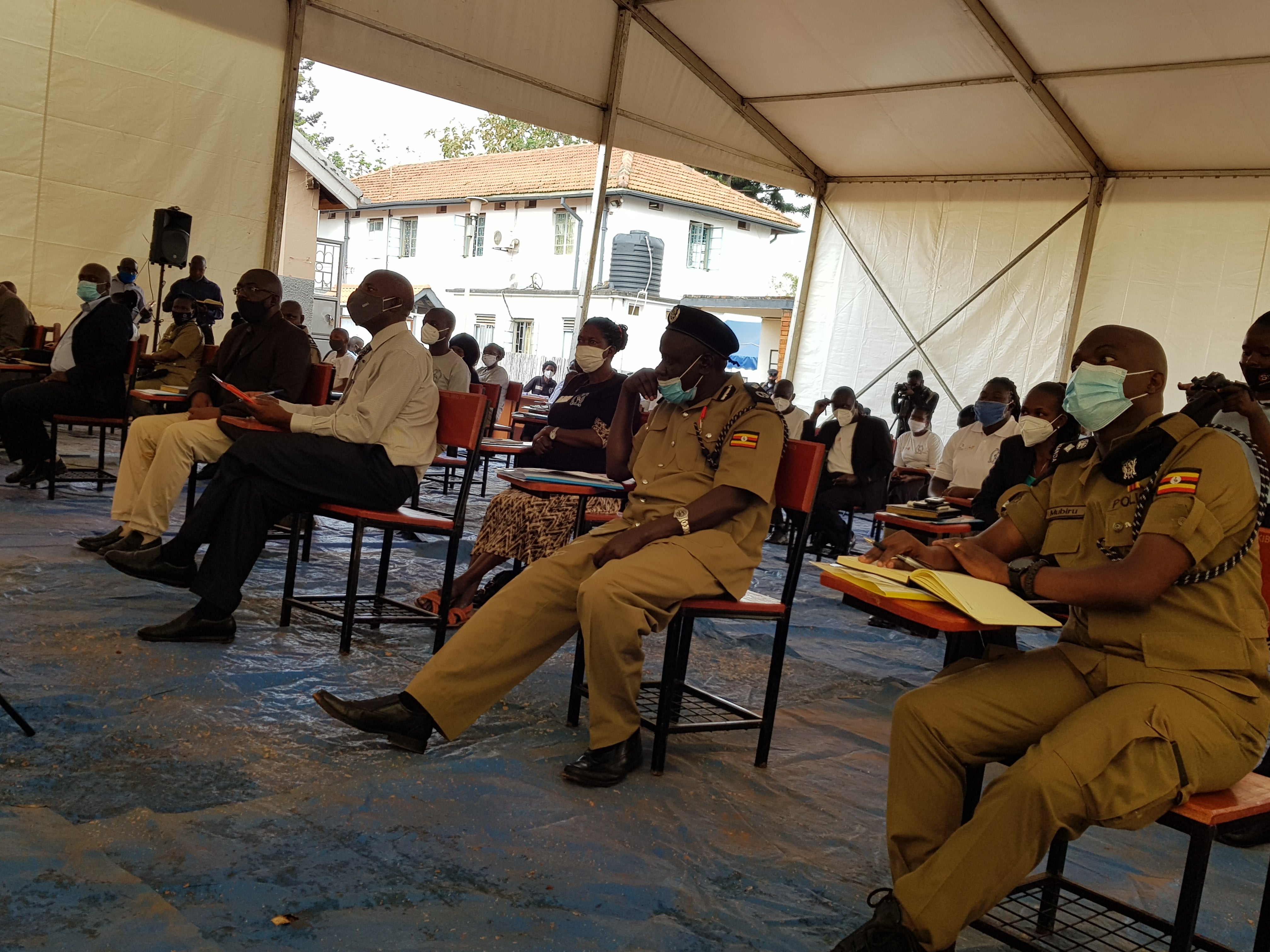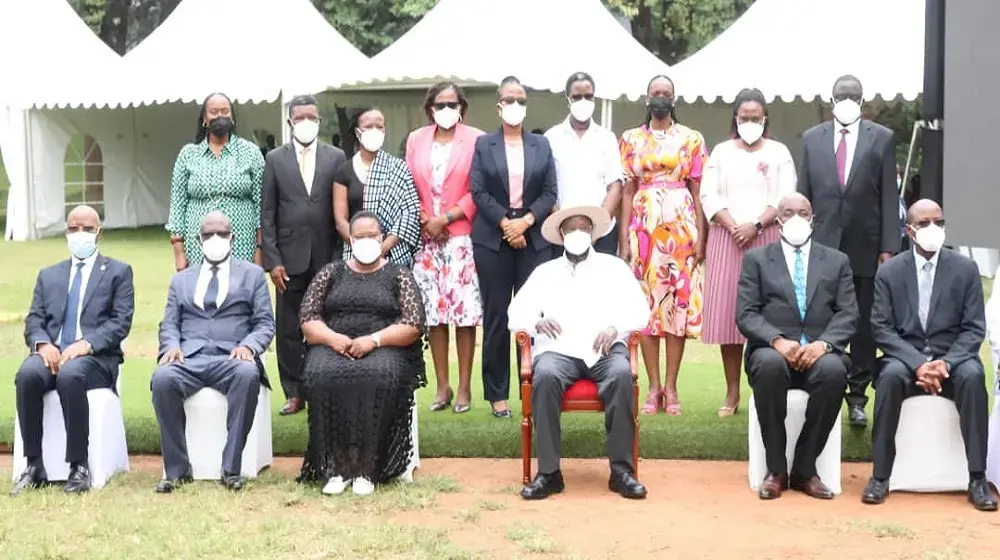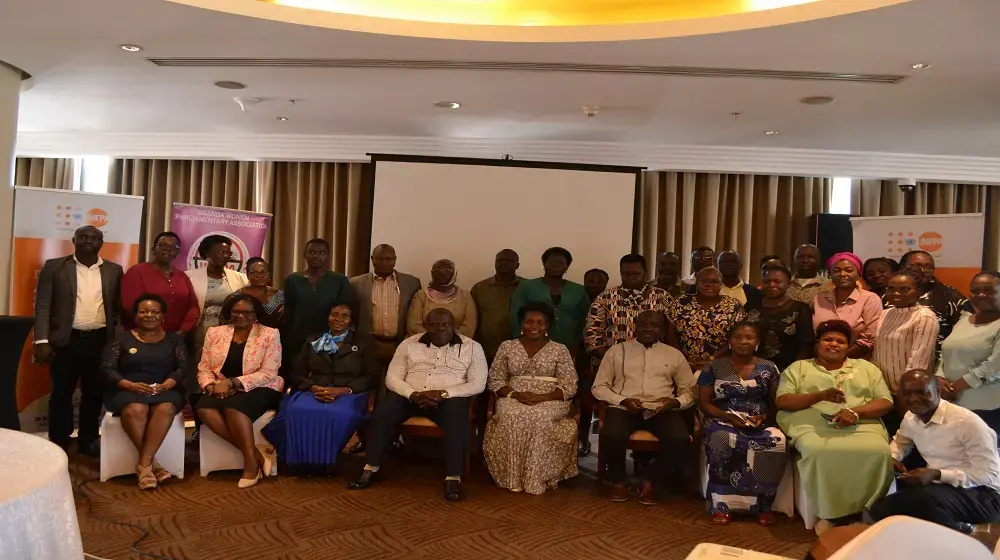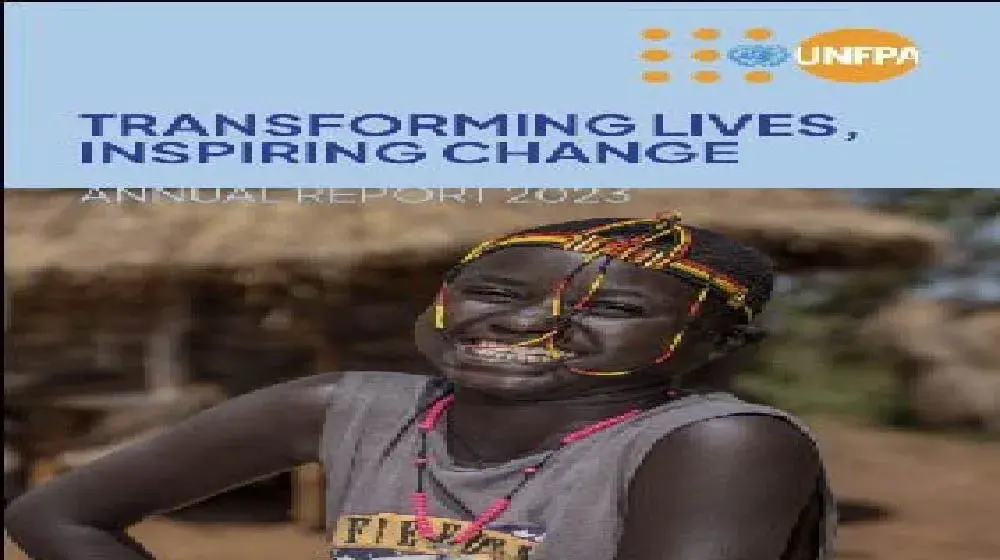Kampala, Uganda - The training of the Uganda Police Force and their families on gender-based violence and sexual reproductive health and rights opened on Tuesday at the Crime Investigation Department (CID) headquarters in Kibuli, Kampala. The programme that will cover 14 districts across Uganda was flagged off by the Deputy Inspector General of Police, Maj. Gen. Sabiiti Muzeeyi.
Speaking at the ceremony, Maj. Gen. Sabiiti noted that gender-based violence remains one of the most notable human rights violations within the community that needs to be tackled with the seriousness and focus it deserves.
According to the Uganda Police Crime Report, 7.2 percent (15,638 cases) of all crimes reported in 2019 were sex related.
The COVID-19 Pandemic has not helped in getting the situation any better. The mid-year Uganda Police Crime Report (January – June, 2020) shows that on average, a total of 2,707 cases of sexual and gender-based violence were reported to police every month.
Maj. Gen. Sabiiti commended UNFPA for supporting the Uganda’s Police’s response efforts.
“We have embarked on awareness raising and sensitization for both Police and communities. The target is to have improved reporting of gender-based violence cases and also reduce stigmatization,” He said. “I use this opportunity to thank UNFPA for supporting our forensic capabilities with biosafety fridges, sexual assault kits, and other tools.”

CID in Kibuli, Kampala. © Prossy Jonker Nakanjako/UNFPA
Maj. Gen. Sabiiti called for a law to protect witnesses of sexual and gender-based violence. “Currently, Uganda has no witness protection law,” He said.
He noted that such legislation would not only ensure protection of survivors but also would lead to the fulfilment of the accountability process.
Representing UNFPA at the ceremony, the Assistant Representative of UNFPA, Dr. Edson Muhwezi commended the Uganda Police Force for giving special attention to the wellbeing of girls, women, men and families, so that they are free from gender-based violence and can enjoy their sexual reproductive health and rights.
“I also thank the Government of Sweden for their support to this initiative through the United Nations Joint Programme to Prevent Gender-Based Violence,” Dr. Muhwezi concluded.
By Prossy Jonker Nakanjako





